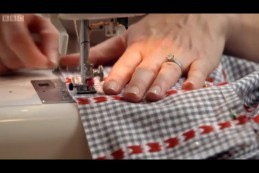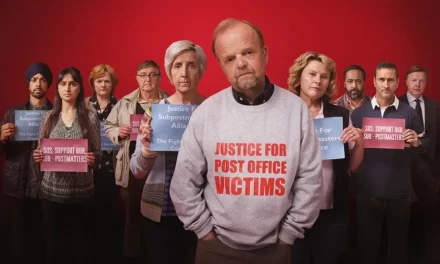BBC4 is featuring interviews at the moment, examining this most basic taken-for-granted of TV. They’re doing the inevitable extracts series; rescreening samples from the archives; putting up classics on their website; getting interviewers to interview each other (Mark Lawson does Terry Wogan for instance); and even showing a series by David Frost. Except there seems to be just one episode from the Frost series, shown first last Tuesday . What happened? One day Frost will reveal all… perhaps if he is ever grilled by Graham Norton. Meanwhile the head of the show gave some tantalising glimpses of subjects not dealt with later. Yes, we had Melvyn Bragg roaring drunk with Francis Bacon, John Nott walking out on Robin Day and other such classics. But there also were a few seconds from Frost’s most infamous interview: the ‘trial by television’ of the crooked businessman Emil Savnundra in 1967. Frost, standing, hectoring, pointing a figure at his subject… now that’s an interview whose story I’d like to hear.
Frost’s programme kept religiously to the famous person interview (politicians and celebrities), ignoring the fact that TV trades just as much in interviews with the non-famous, or whatever the ‘ordinary person’ is nowadays. Perhaps the correct description is ‘people in a pre-Max Clifford state’. His thesis was simple: the interview is a power struggle, with the advantage being held by one side or the other according to the prevailing conventions. Today’s interviews are a stalemate, he thinks, with interviewees on the defensive and too many spin doctors and publicists getting in the way. He seemed to think that the problem lay in interviewees having too great an awareness of the eventual audience. But that, in my opinion, is the essence of the interview exchange. Everyone involved is aware that they are not only talking to each other, but also to an audience that is elsewhere… an audience who are the sole reason why the exchange is taking place at all.
Michael Parkinson offered a different insight, explaining that both sides have to understand the need of the other. “They’ve got something to flog… but the better they relate to you the better they flog it. And I just want a good story”. Later one he revealed another aspect of the interview power balance: “they’ve got more to lose than I have”. Frost left it to TV critic AA Gill to use the word ‘empathy’, but this is the secret of his famous Richard Nixon interview. Examining this in detail for my book Documentary: Witness and Self-revelation, I realised that it was only Frost’s ability to put himself in Nixon’s place that enabled him to extort the disgraced president’s famous confession. But empathy did not fit Frost’s thesis of the interview as power struggle, so empathy was left to arty types like Bragg and Bakewell.
Frost (and, it seems, BBC4’s season) emphasise celebrities and politicians. Anyone interested in documentary knows that the trickiest interview situations, and the most rewarding material, involve people in their pre-Max Clifford state. Before TV, such people were hardly ever interviewed. In fact, before TV, the face-to-face interview on film hardly existed in the form we know it now. Even on radio, the interview was a rehearsed and prearranged affair; in cinema, the length of film available in a 35mm magazine allowed just a few brief minutes of exchange, well short of a conversation. TV, with its warm studios and plenty to time to fill, changed all of that. TV, with its tight close-ups that appeared life-sized to the viewers at home, suddenly gave a new intimacy to the “filmed” interview exchange. TV it was that gave us the interview as we now know it. Where would celebrity culture be without it? And what effect has it had on our political culture, bringing us so much closer to our politicians? Or to be more precise, TV seems to bring us physically closer, but they are engaged in sophisticated calculations about how they will come across. Alastair Campbell’s dissection of Tony Blair confronted with Frost’s surprise question “do you and George Bush pray together?” is well worth the programme. But somehow David Cameron, yet again, was not identified as in the thick of all this. His one real job was as a TV PR guy, fronting up for the troubled ITV company Carlton… even when they were fined £2.5million for making the fake documentary The Connection. The interview: TV’s biggest contribution to changing the world?
JOHN ELLIS is Professor of Media Arts at Royal Holloway University of London. He is the author of Documentary: Witness and Self-revelation (Routledge 2011), TV FAQ (IB Tauris 2007), Seeing Things (IB Tauris 2000) and Visible Fictions (1984). Between 1982 and 1999 he was an independent producer of TV documentaries through Large Door Productions, working for Channel 4 and BBC. He is chair of the British Universities Film & Video Council and leads the Royal Holloway team working on EUscreen. His publications can be found HERE.





